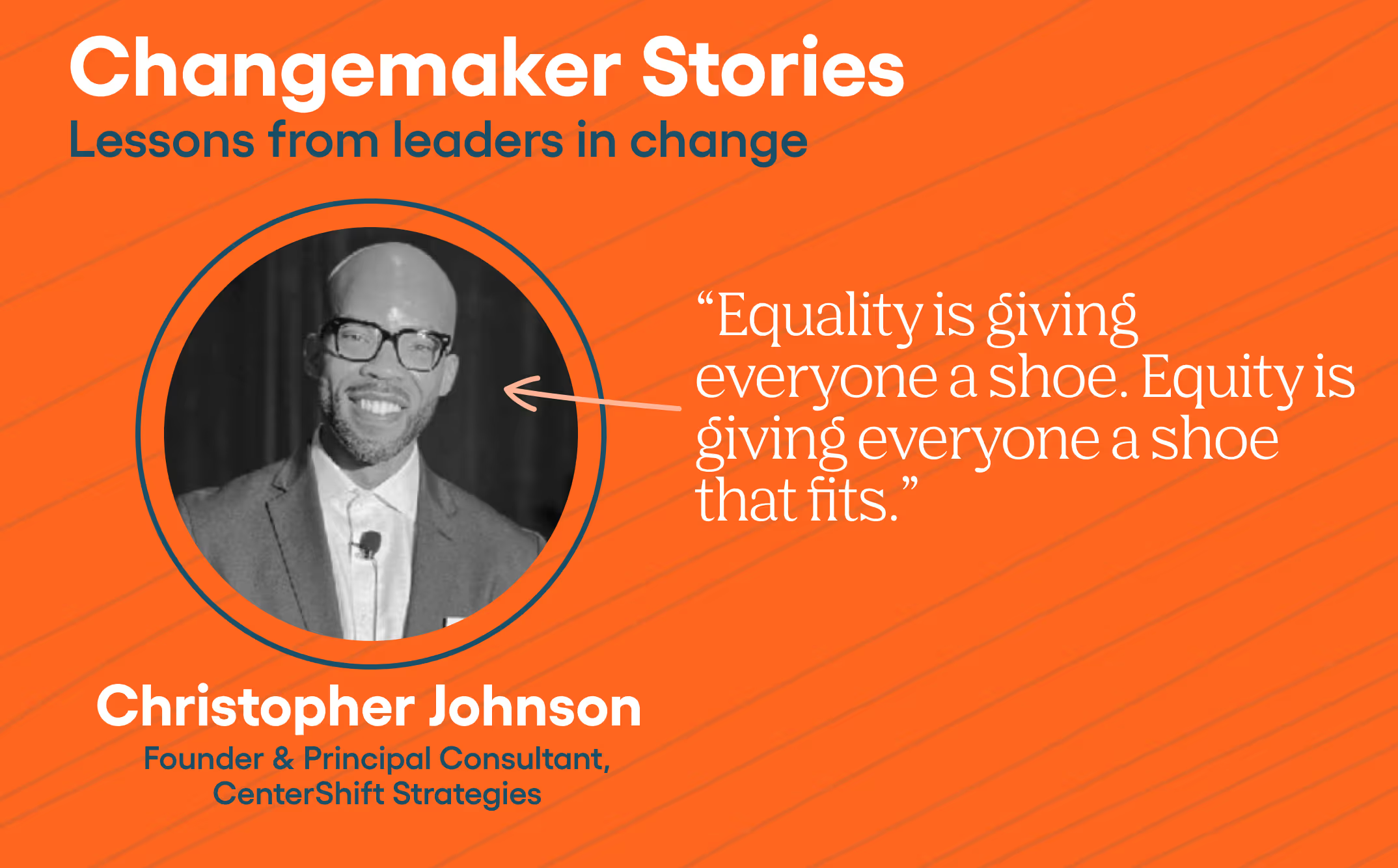

Welcome to Changemaker Stories from LOCAL – an ongoing series of personal interviews with leaders driving change across every industry and discipline. Because change shouldn’t mean going it alone.
Christopher Johnson was the first in his family “to even sniff a college campus” as he puts it. He grew up in public housing, in a single-parent household, with two pairs of shoes to his name through most of elementary and middle school. That experience shaped everything about how he leads.
I know what it means to feel unseen. That’s why I build systems that make people feel seen. Across healthcare, education, government, law, and corporate America, I’ve spent more than two decades aligning equity-centered, people-first strategy with business outcomes. Because when you center humans, you don’t just make people feel better—you drive sustainable results. My work has always been about connecting people to passion and purpose—and then connecting that to measurable outcomes. I believe that inclusive leadership isn't just morally right. It's the most effective business strategy we have.
The most powerful leadership tool we have is communication. To me, resourcefulness looks like transparency. You don’t need a fully baked cake to start talking to your people. Let them in on the recipe. Let them see how the ingredients are coming together. Even if it’s messy, even if you don’t have all the answers—especially when you don’t have all the answers. People don’t need perfection. They need honesty. When you invite people in, they start to feel like they matter. They understand how their role connects to something larger. That doesn’t just build trust—it builds traction.
And when that happens, something shifts: people move from performative to habitual. You see the behaviors you’ve been encouraging show up on their own. You hear your team using new language—not because they were told to, but because they believe it. That’s when you know change is sinking in. It’s no longer top-down. It’s owned.
But when it’s not working? Watch for disengaged leaders. When leaders stop showing up as the voice of change, it sends a signal. And if that message is being delivered through mandates without empathy—without story, without dialogue—resistance is almost guaranteed. I’ve made that mistake. I’ve pushed change that wasn’t paired with communication. I’ve learned that mandates without meaning don’t land. They fracture trust.
Change doesn’t work to people. It works with them. So how do you lead in uncertainty? That’s the question I’ve been asking myself as I step into a new chapter. And my answer, increasingly, starts with a phrase that used to terrify me: I don’t know.
Real change is earned. And it starts with three words: I don’t know. Being willing to say those words has opened doors I didn’t expect. It's made me a better leader, a better collaborator, and a better human. Because when you admit you don’t have all the answers, you create space for others to step in and help build them with you. That's not weakness. That's wisdom. That’s leadership.
In my personal work—and with the leaders I coach and support—we’re practicing what it means to trust the process. To show up with transparency, to hold each other accountable, and to communicate even when we’re unsure. Especially when we’re unsure.
You don’t need to wait for perfection to begin. My grandmother used to make banana pudding that I still dream about. She’d wait until it was just right. But in this work, we don’t have that luxury. We can pull the cake out early. We should pull the cake out early. Because the process matters more than the polish. Because people remember how you made them feel far more than whether your plan was flawless.
You can’t transform alone. You build together. That’s the metaphor behind one of my favorite places in Lexington—the Legacy Trail. It weaves together parts of the city that don’t usually connect. Neighborhoods that often feel separate. It doesn’t force people together. It makes it easier for them to find each other. That’s what culture work is. That’s what change looks like at its best.
Don’t force people together. Build the trail. And if you’re not sure where the trail leads? That’s okay too. Just start with: I don’t know. But I’m willing to find out—with you.